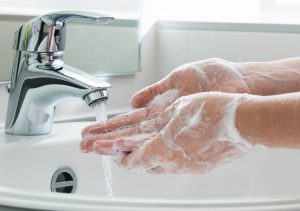More from Dr. Donna Kachinskas:
By now we have all heard a lot about the novel coronavirus spreading throughout the world, COVID-19. How easily a virus spreads from person-to-person can vary. Some viruses are highly contagious (spread easily), like measles, while other viruses do not spread as easily. Another factor is whether the spread is sustained, spreading continually without stopping. The virus that causes COVID-19 seems to be spreading easily and sustainably in the affected geographic areas. We will continue to learn more as the situation evolves.
Staying Healthy and Disease Free
Here is a subjective grading system, generated by an infectious disease specialist, of some infectious-agent advice you are probably hearing to avoid becoming sick or spreading the illness:
- Don’t shake hands or hug and kiss when greeting people. Cuts down on the hand-to-hand spread of unseen viruses. A+
- Get your flu shot. Vaccinations will likely stop you from catching the flu, and, even if you do get it, the vaccine makes it much, much less likely that you will die. Coronavirus causes “flu-like symptoms”, so, if you are not inoculated against influenza and you get sick, exhibiting those symptoms will mean you have to be ruled out as a new coronavirus patient. A+
- Wash and scrub your hands and nails well with soap and water. This is the most basic line of defense and beats hand sanitizer and everything else in its ability to kill germs once they’ve reached your skin. A+
- Remove your shoes when you come indoors. Swapping outdoor shoes for indoor slippers will cut down on the transmission from the big dirty world into your home of fecal-borne bacteria and viruses. A
- Don’t touch doorknobs in public spaces. Use a handkerchief or shirt sleeve to pull open doors, and your shoulder to push them. A
- Stay home if you are sick. From a public health perspective staying home when you have upper respiratory symptoms (coughing, sneezing, sore throat). Not practical for many of us but good practice. A
- Cover your nose and mouth with your elbow when you sneeze. Not always practical and sometimes results in imperfect containment (visit any preschool) and results in a sleeve covered in infectious goo. B
- Hand sanitizer and anti-bacterial wipes. A fine idea but not a miracle cure. Use them as a stopgap measure between hand-washings. B
- Wear gloves. Leather or polypropylene gloves might be helpful if they make you less likely to touch your face, and if you figure out a way to wash or sanitize them, this is the key. B
- Wear a face mask if you are sick. Face masks are designed to protect the public from you, not the other way around. Surgical masks are a problematic precautionary measure for the current crisis, at least right now. C
- Don’t touch your face. While you’re at it, don’t think about pink elephants. This is stupid advice and all but impossible. Every time I see a public health notice warning me not to touch my face, my eyebrows start itching and I feel phantom hairs tickling my nostrils. D
Six reasons to choose a naturopathic doctor:
- You want a doctor who will treat all of you, not just your illness.
- You want personalized treatment.
- You want to treat the root cause of an illness, not just the symptoms.
- You want to actively participate in managing your own health.
- You have chronic pain and don’t want to use pharmaceutical drugs to manage it forever.
- You have tried all conventional medical options for diagnosing and treating a health condition.
Book now with Dr. Kachinskas by clicking HERE

Leave a Reply